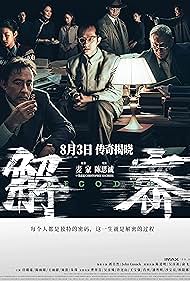Rong Jinzhen showed a unique talent
Chronology
In the 1940s, the world was in turmoil and it was crucial to crack the enemy’s communication codes in a timely and accurate manner.
He was noticed by more people because he accidentally solved the difficult problem
With a broken narrative, a sudden and thunderous soundtrack, and a montage of dreams and reality interspersed, it is clear that the director is trying to tell the story of The Imitation Game and Oppenheimer in the same way he did Inception, with a disastrous ending .
The second half of the film is about his manic dreams inside the base and the mathematics that come from it
The first half of the film is a self-referential narration of the hero’s life, with random inserts of the Sino-Japanese War, the Communist Civil War, and his sister’s forbidden feelings for him (the part of the plot that I couldn’t understand the most).
Science is portrayed by the director as a joke, as ridiculous as a Chinese Ferris wheel and carousel in disguise, imagined by a boy born in a rural area and sent to a closed base right after college
The film always depicts an enemy, be it the Japanese, the Nationalists, the Americans or his teacher, who goes from being a pure mathematician to being crazy, and these pressures fall on the audience in equal measure, while he himself at the last second figures it all out and then the film abruptly stops, leaving behind a group of pathetic spectators who have bellies full of vomit and nowhere to vomit, and who at the end have to watch a bonus scene of the director’s extreme narcissism.




 25/16
25/16